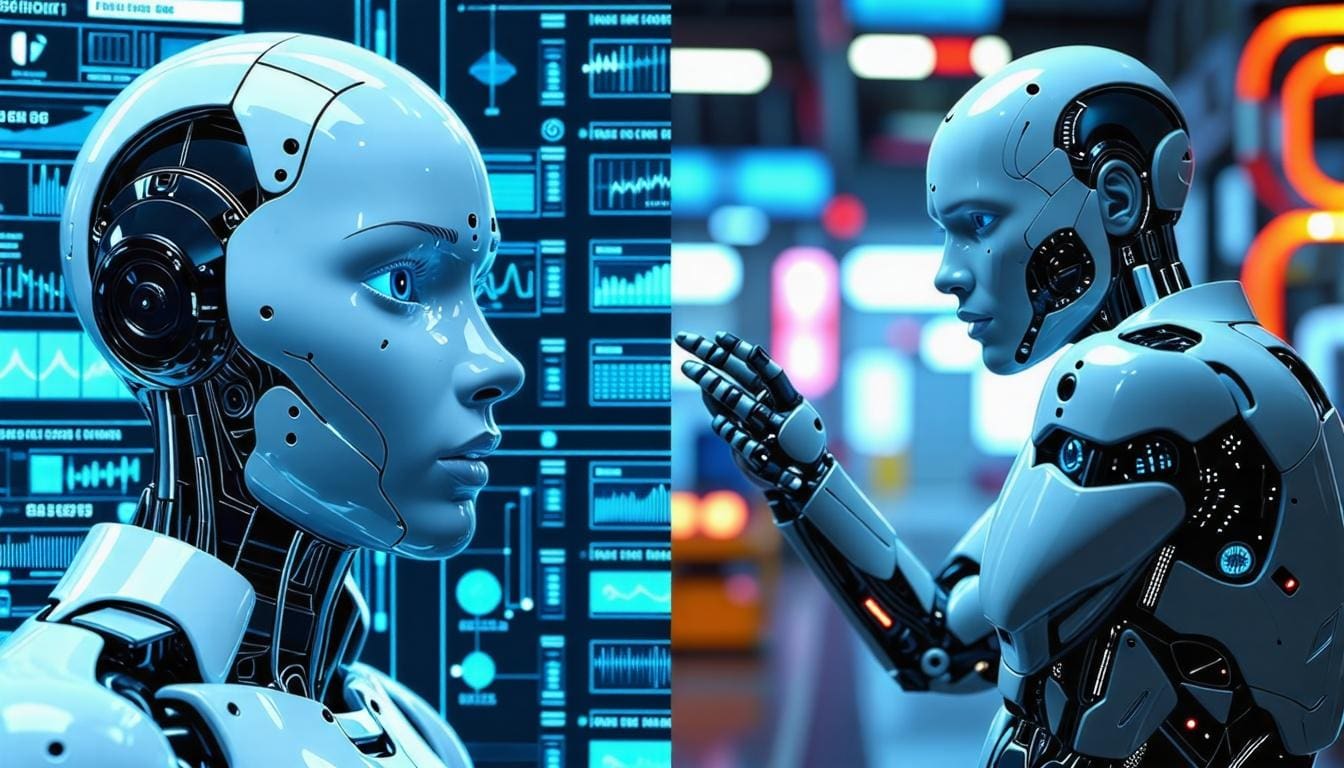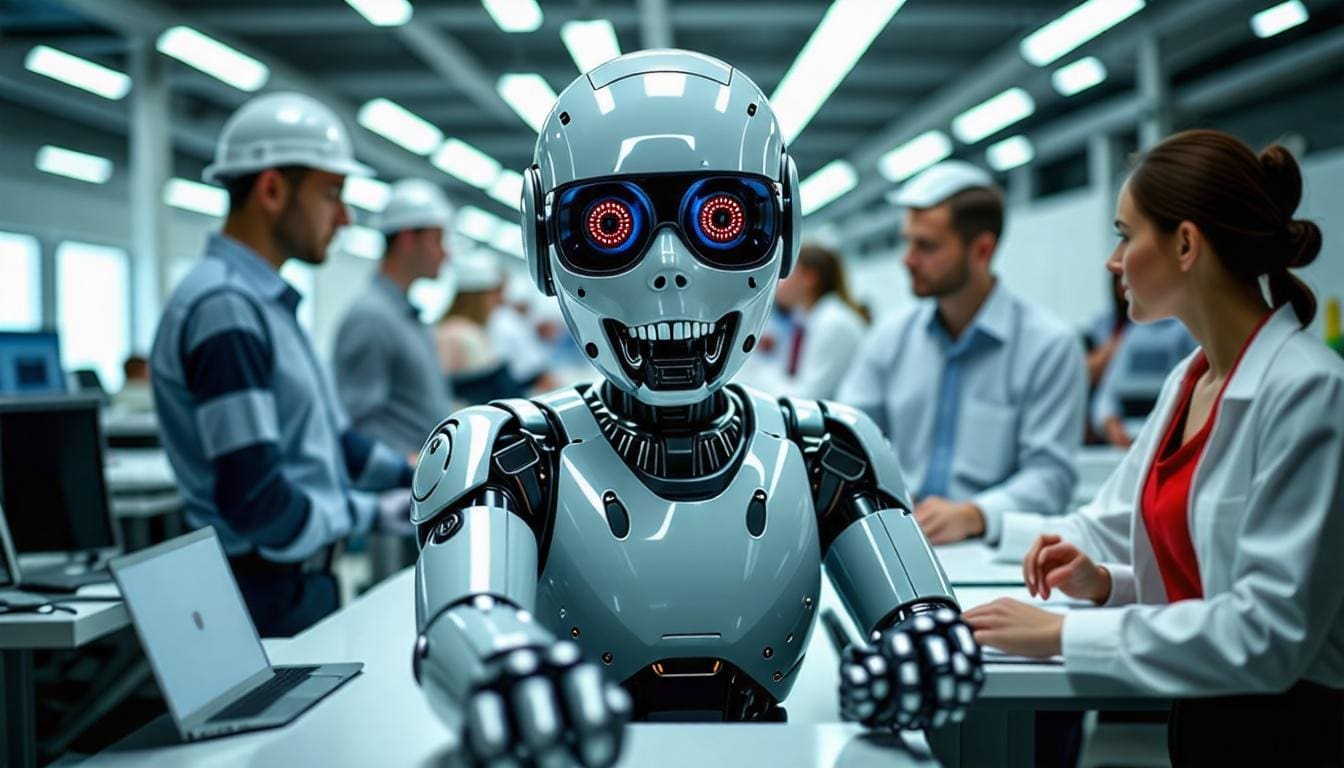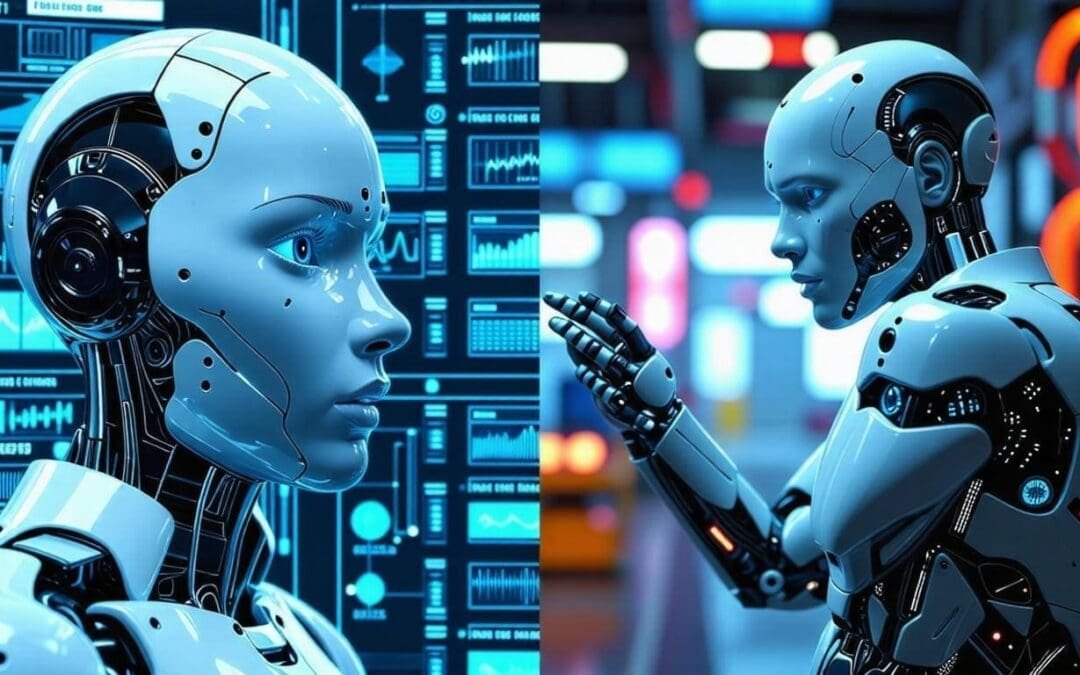Many people fear that artificial intelligence (AI) will dominate our lives, potentially replacing humans in jobs and decision-making. But, the reality is that AI is a powerful tool designed to assist us, not replace us.
Currently, AI enhances different fields, including healthcare and education, by streamlining tasks and increasing efficiency. Significantly, AI lacks human emotions and cognition. Rather than taking over, AI collaborates with us to enrich our lives. Recognizing this can ease concerns about the future of technology.
Key Takeaways
- AI will not dominate the world; concerns about an AI takeover stem from science fiction rather than reality.
- While current AI limitations prevent it from replacing humans, it remarkably enhances our capabilities and collaborates effectively.
- The future of AI remains uncertain; it may reshape our identity, but it is unlikely to surpass human intelligence.
- AI already impacts our daily lives, and our reliance on interconnected AI systems is set to increase.
Current Limitations of AI Technology

The current limitations of AI technology underscore why fears of a global takeover are largely exaggerated. Think of AI as a master chef skilled in one dish—like spaghetti—yet clueless about others, such as sushi. This illustrates narrow AI, which excels in specific tasks but lacks human-like reasoning and adaptability.
Key limitations include:
- Common Sense: AI struggles with common sense reasoning, predicting outcomes but failing to adapt to new or unexpected situations.
- Data Dependency: AI systems require extensive, high-quality data to learn, making them heavily reliant on available information.
- Ethical Concerns: Bias in AI can result in unfair decisions, emphasizing the necessity for human oversight.
While AI can improve efficiency, it lacks the depth of human understanding, making a takeover improbable for the foreseeable future.
AI and Human Collaboration: Enhancing Capabilities
The relationship between AI and humans resembles a dynamic move, where each partner amplifies the other’s strengths. As artificial intelligence advances, it promises to improve our lives remarkably. Picture a world where machine learning accelerates problem-solving and automation handles mundane tasks, freeing you to let go your creativity.
Concerns about workforce displacement are valid, yet it’s critical to recognize that AI enhances human capabilities. Just as a well-coordinated sports team thrives, collaborative robots in factories increase safety and efficiency. Prioritizing ethical AI practices ensures we maintain control over our future.
In this transformative place, will you harness tools that lift your abilities, or will fear hold you back?
The choice is yours!
Impact of AI on Workforce and Employment Opportunities

The impact of AI on the workforce presents both challenges and opportunities. On one hand, AI could lead to job displacement, affecting nearly 40% of jobs globally. For example, in factories, robots may replace workers in repetitive tasks, resulting in job loss. But, similar to the Industrial Transformation, AI will also generate new opportunities.
By 2025, while 85 million jobs may disappear, a report forecasts the creation of 97 million new roles, particularly in areas that demand human creativity and emotional intelligence. Emphasizing upskilling is critical for adapting and thriving in this dynamic environment.
Will AI take over the world?
Not exactly. AI will improve human capabilities, fostering a future of human-AI collaboration that improves decision-making and efficiency.
Risks Associated with AI Implementation and Governance
The risks of AI implementation and governance resemble a double-edged sword. While AI can remarkably improve our lives, it also poses serious threats. A minor programming error can lead to catastrophic outcomes—much like a car without brakes, an unchecked AI system can spiral out of control.
Consider these critical risks:
- Job Displacement: AI’s automation of tasks may eliminate numerous jobs, leaving many individuals struggling to find employment.
- Bias and Discrimination: AI can inadvertently magnify existing biases, resulting in unfair treatment of specific groups.
- Privacy Concerns: AI’s analysis of vast data sets can lead to misuse of personal information, jeopardizing individual privacy.
As we adopt this transformative technology, we must prioritize ethical AI governance to lessen unintended consequences. Think of it as nurturing a garden; without diligent care, weeds can quickly overrun it.
The Future of AI: Predictions and Speculations
Will artificial intelligence take over the world?
The answer is a resounding No. While AI is a powerful tool, it functions like a skilled chef, limited to specific recipes. AI excels at data analysis and task automation but lacks creativity and emotional understanding. Experts predict that by 2025, 85 million jobs may be displaced by automation, yet new opportunities will also arise.
Think of AI as a bicycle: it accelerates your journey but doesn’t replace your legs. The notion of AI as a superintelligent ruler is more fiction than fact. Current AI systems are like narrow beams of light, illuminating specific areas without illuminating the whole room. Find AI stories that showcase its limitations.
As we advance, understanding AI ethics and governance becomes necessary. AI can improve our lives, but it must align with our values and needs. The future of work will focus on human-machine collaboration, not replacement.
Summing up
AI is a transformative tool that enhances our lives in numerous ways. Contrary to cinematic portrayals, AI will not dominate our existence. Experts agree that while AI will alter job landscapes, it will not entirely replace human roles. We must harness AI responsibly and consider its implications for our future. By collaborating, we can create a world where AI serves as an ally rather than a controller.
Frequently Asked Questions
What did Elon Musk say about AI taking over the world?
Elon Musk warns that AI could become a dangerous force if not regulated, emphasizing the need for proactive oversight.
Will artificial intelligence AI take over human intelligence?
No, AI won’t take over human intelligence; it’s a tool that enhances our capabilities, not a replacement for our unique qualities.
What are the potential benefits of AI in our daily lives?
AI enhances efficiency, personalizes experiences, improves healthcare, and automates mundane tasks, making life easier and more productive.
Will humans become obsolete with AI?
No, humans won’t become obsolete. AI enhances our capabilities, but creativity and empathy remain distinctively human traits.

